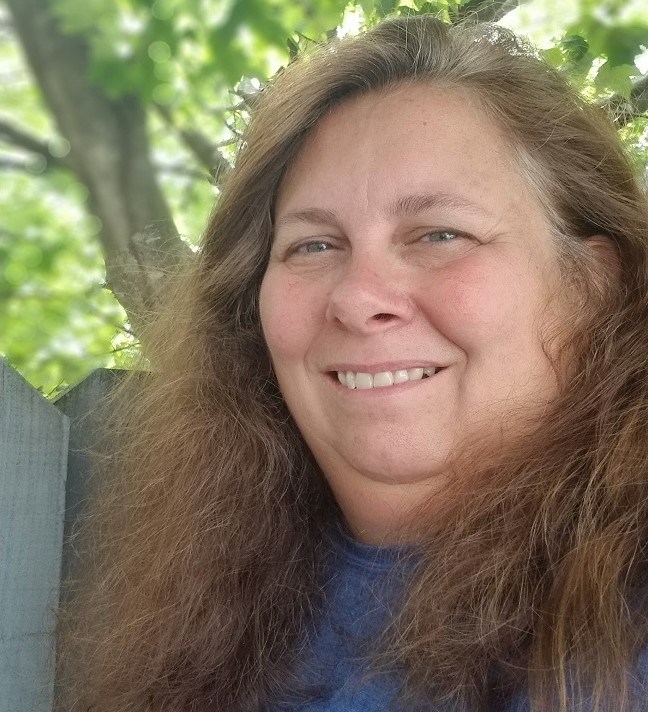Last updated: October 16, 2024
Article
Meet the Mellon Fellows: Dr. Beth Kruse

Dr. Beth Kruse
University of Mississippi
PhD, History
Host Site: Vicksburg National Military Park
Fellowship Title: African American Experience in Vicksburg from Civil War through Reconstruction Fellowship
Project Description: Dr. Kruse will expand research, understanding, and interpretation of the United States Colored Troops (USCT), Federal occupation, and Reconstruction in Vicksburg. Areas of emphasis will include telling life stories from Vicksburg and stories of soldiers buried in the National Cemetery, and supporting the observance of the 150th Anniversary of the Vicksburg Riots.
Bio:
Dr. Beth Kruse earned her Ph.D. in 2021 from the University of Mississippi. Her dissertation challenged understandings of the Civil War era by centering the experiences of prisoners of war and the military prison communities. Her case studies included USCT and their fight for citizenship rights, southern-sympathizing women living in the north aiding CSA prisoners, and soldiers’ creation of economic markets within the prisons. The case studies revealed the degree of influence these historical actors exuded regarding the various prison policies in the north and south. Her work also involves understanding how public memory of historical events influences current events. A dedicated public historian, she has also served as a volunteer Civil War Flag Conservationist for the Illinois State Military Museum, a docent at the Abraham Lincoln Presidential Museum and the annual Holly Springs Behind the Big House Project, and Assistant Principal Investigator on the Ida B. Wells Commemorative Tour, a racial reconciliation heritage tourism project.
Tell us about your research interests!
My main interest is in Civil War military prison studies. My interest in the Civil War started in the 1980s with my first trip to Shiloh. I continued to read Civil War books and visit sites over the years. When I returned to college as an adult, I started reading memoirs of the ex-prisoners and just got hooked. While the Civil War is broadly written about, the prisoner of war experience is understudied, so I focused my attention on it. While working on my MA thesis, my mom came over, dropped off a box, and said somewhere in there is something about a Civil War soldier in our family. Come to find out, not only was there a Civil War officer but he was also a captured prisoner. My great-great-grandmother was born almost ten months after her father was released from a St. Louis military prison. I partly exist due to the Civil War military prisoner of war policies!
I am interested in the complexities of soldiers placed in home fronts, how soldiers found ways to survive in harsh conditions, and how the military and local communities dealt with the influx of guards and prisoners in their community, economically and politically. These topics provide insight into failures of Union supply lines, the political activity of both loyal and treasonous women’s activities, psychological insights in understanding prisoner trauma, and contrasting white prisoner experience versus the impressment policies applied to captured Black Union soldiers. Formal “Laws of War” and prisoner of war policies are consequences of U.S. Civil War issues and parts of the Geneva code are virtually unchanged. Understanding the origins of international codes of war and treatment of soldiers and civilians seems to be highly relevant based on current inhumane military actions in the Middle East and Ukraine.
How does your research connect to the mission of the National Park Service, which serves both parks and communities?
My Civil War military prison research will help the Vicksburg National Military Park understand its importance in the prisoner of war system which is almost entirely omitted from their interpretation now. I can help bring out the experiences of common soldiers, political prisoners, women, and USCT as captured combatants and noncombatants, as well as the implications on the community since Vicksburg was a designated prisoner exchange location. My foremost goal, though, is relating to the broader fellowship goals of finding the African American experiences during the war and after. This focus is filling a recognized systematic gap in the NPS interpretation of a diverse nation. African Americans roles and participation in the Civil War and their continued struggle for citizenship rights is integral to helping visitors understand American history overall and the importance of the Vicksburg people and events in that fight for freedom.
What are you most excited about as you begin your fellowship?
I am most excited about focusing my efforts on public-facing projects and reaching a broader group of individuals who share an interest in under-told Civil War and Reconstruction era histories. The ability to lay groundwork and build partnerships focusing on park diversity that will grow beyond my two years is especially rewarding.
Do you have a favorite story about your personal experience with the NPS, or a park or program you admire?
My dissertation advisor, Dr. John Neff, would invite his undergraduate Civil War class to join him at Shiloh National Military Park for an in-depth discussion of the war, the monuments, and how commemorative memory influences public understanding of the war. I was asked to join, where he also took the opportunity to ask me deeper questions and in general get to know my thought process and understanding of the Civil War. I didn’t put his motives together until after his death, unfortunately. It was a wonderful learning experience for me as I witnessed young students grapple through the complexities of war and memory, watched an exemplary historian do what he did best, and learned more about this NPS site. Coincidentally, Shiloh was also the park my family visited when I was a teenager and sparked my interest in the Civil War. Shiloh National Battlefield will always hold an extra special place in my heart due to these two very personal connections.
